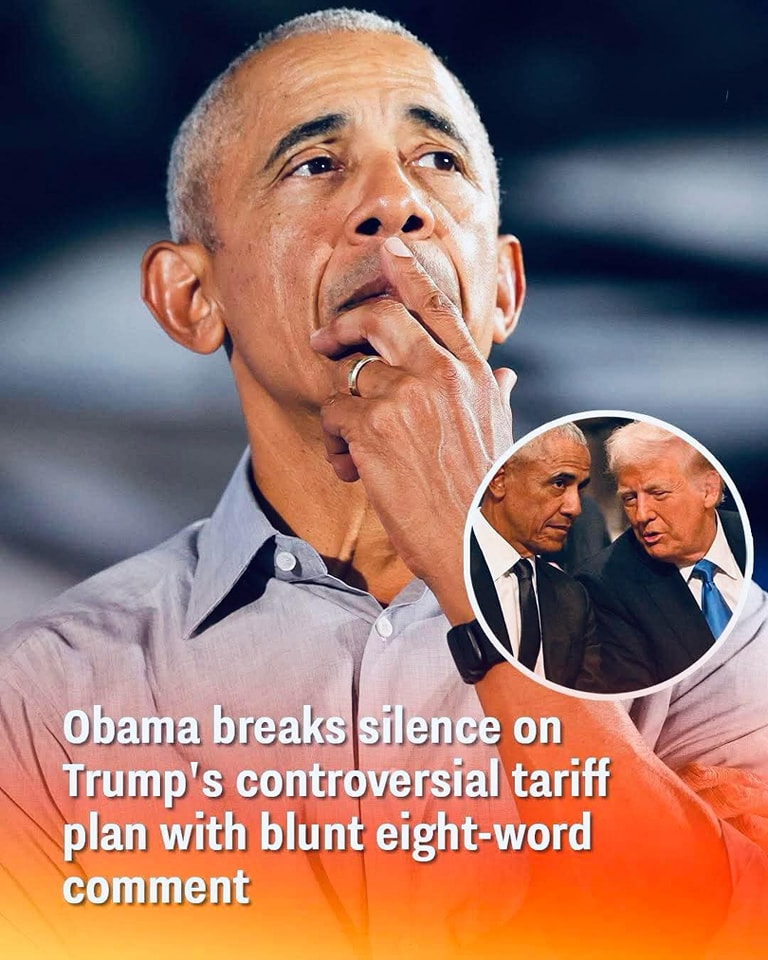Obama slams Trumps tariff plan with blunt eight-word comment
President Donald Trump and his administration have repeatedly taken actions that have ignited debates across both political circles and the general public. One of the most contentious policies he introduced since his return to the White House was a sweeping new tariff plan, unveiled on what he proudly called “Liberation Day.” This policy, as reported by VT, imposes a standard 10% tariff on all imported goods, while significantly increasing rates for 60 countries identified as the “worst offenders.” According to the administration, these measures are intended to protect American industry and encourage citizens to buy domestically produced goods.
During a speech delivered from the historic Rose Garden, Trump declared, “We’ve been waiting for a long time. April 2, 2025, will forever be remembered as the day American industry was reborn, the day America’s destiny was reclaimed, and the day that we began to ‘Make America Wealthy Again.’” He went on to assert that, for decades, the United States had been systematically exploited—looted, pillaged, and treated unfairly by nations from every corner of the globe. His rhetoric resonated strongly with supporters who believe that American workers and businesses have long suffered under unbalanced trade practices.
However, not everyone in the political arena welcomed these changes. Critics argued that many of the executive orders Trump signed, including his latest tariff plan, not only stirred controversy but also, according to several organizations, clashed with existing laws. One of the most vocal opponents was former President Barack Obama. Speaking at Hamilton College in Clinton, New York, Obama expressed his deep disagreement with what he described as a misguided economic strategy. “I have deep differences of opinion with my most immediate successor—who’s now president once again,” he remarked. “I don’t think what we just witnessed in terms of economic policy and tariffs is going to be good for America.” He further elaborated his concerns by highlighting broader issues, such as threats by the federal government to restrict academic freedom if universities do not comply with certain ideological expectations, and pressuring law firms to drop clients who do not align with the administration’s views. His eight-word concluding remark, “Imagine if I had done any of this?” underscored his belief that Trump’s approach was not only flawed in economic terms but also dangerous to the principles of free speech and legal representation.
Under the new policy, tariffs on U.S. goods have already been announced by some of the affected countries, setting the stage for a potential trade showdown. The White House has made it clear that the tariffs will remain in place until the president deems that the threats posed by the trade deficits and the underlying issues of nonreciprocal treatment have been sufficiently addressed. In Trump’s view, these protective measures will stimulate domestic production and ultimately benefit the American economy by reducing dependency on foreign goods.
As the debate continues to intensify, the ramifications of these decisions extend far beyond immediate economic impacts. They have sparked a broader conversation about the direction of American policy—raising questions about fairness in international trade, the balance of power between government and private interests, and the long-term consequences of protectionist strategies. Whether one supports these measures or criticizes them as an overreach of governmental power, there is no doubt that the policy represents a pivotal moment in the ongoing struggle over America’s economic future.
Please share this article with your family and friends on Facebook, as the discussions it has sparked touch on issues that affect us all—from the health of our economy to the principles we cherish as a nation.





